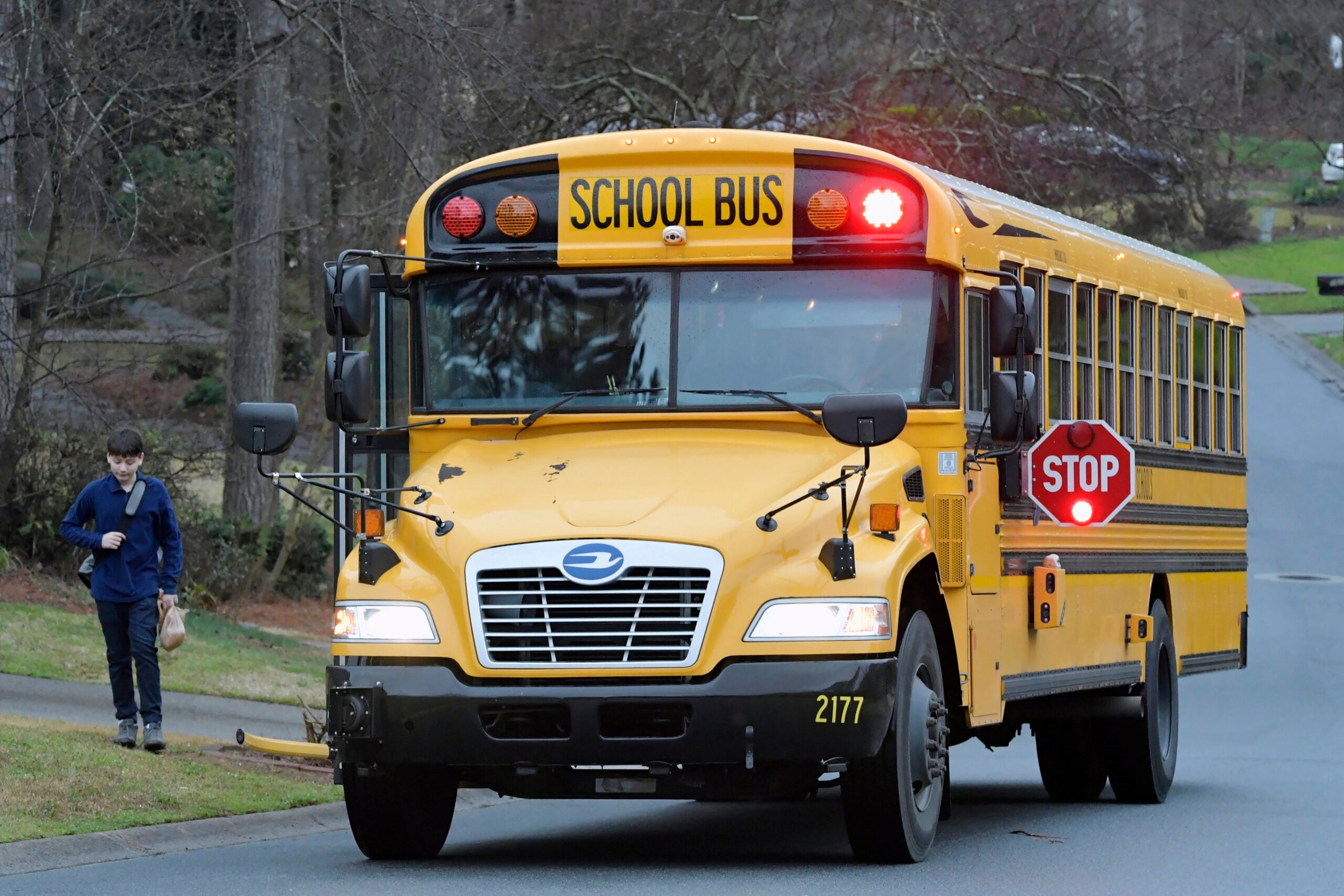A Wisconsin bill would give schools grants for artificial intelligence software designed to detect guns and other weapons.
Legislation that cleared Wisconsin’s Assembly with bipartisan support last week would allocate $4 million in the current budget cycle so public and private schools could apply for the program.
The proposal still needs approval from Wisconsin’s Senate, which could take up the legislation in March during the final day of its session.
News with a little more humanity
WPR’s “Wisconsin Today” newsletter keeps you connected to the state you love without feeling overwhelmed. No paywall. No agenda. No corporate filter.
Proponents say the technology is another way to deter school shootings by detecting the presence of weapons as people enter the premises.
“The safety products we’re envisioning for this grant rely on human and artificial intelligence to augment security cameras and other existing equipment to identify weapons and other threats when present in a school,” co-sponsor Sen. Van H. Wanggaard, R-Racine, wrote in testimony attached to the bill. “These products can detect threats before the human eye and sometimes threats that the human eye can’t see.”
Under the bill, a school could apply jointly with its local law enforcement agency for a grant administered through Wisconsin’s Department of Justice. The legislation does not name the vendor that would provide the technology, although several companies have popped up to provide such services across the country.
During a committee hearing in November, lawmakers heard testimony from a security company called ZeroEyes and another called Guardian School Security Systems. The company Omnilert also lobbied in favor of the bill.
ZeroEyes says it connects to a client’s existing surveillance camera feed and uses artificial intelligence to scan those images for objects that could be a gun. A human being at the ZeroEyes operations center then reviews the image to determine whether a firearm is actually present, according to the company.
Wisconsin’s Chiefs of Police Association was among the groups to register in favor of the legislation, arguing it could help head off violence in schools by allowing officers to respond more quickly.
“When officers are more informed when arriving on scene, they’re more effective in responding to that threat,” Association President Dan Thompson, who also serves as Waukesha police chief, told the Assembly Committee on Criminal Justice and Public Safety.
Critics warn of oversurveillance
But critics have raised privacy and civil rights concerns.
Amanda Merkwae is a lobbyist for the American Civil Liberties Union of Wisconsin, which opposes the bill.
She said there’s a danger of over-surveillance and false positives, and said the legislation does not impose sufficient checks on how businesses can store and use the data.
“We have to be really careful about new intrusive technologies that threaten privacy, (and) I think, bring dubious benefits and can have really serious negative side effects such as racial profiling, and disrupting an educational environment.” Merkwae said in an interview. “Unless we really have proof of the technology’s efficacy from sources that are unbiased and fully independent.”
Rep. Shae Sortwell, R-Two Rivers, was among the representatives who voted against A.B. 542 , which would authorize the grant program.
He says the technology could violate Constitutional protections against unreasonable searches.
“The technology from some of the companies that presented at the committee (that) could be utilized under this proposal violates people’s Fourth Amendment rights,” Sortwell said in a interview with WPR.
Sortwell also voted against a companion bill to authorize funding for the grants, which cleared the Assembly in a 90-7 vote. He says he’s concerned that technology from Guardian School Security Systems, a potential vendor, could amount to “strip searches.”
That was a concern echoed by Rep. Nate Gustafson, R-Fox Crossing, who voted against the legislation.
“It’s a dangerous route to install technology that essentially strip searches anyone without consent,” Gustafson said in a statement. “This allows for an infringement of Fourth Amendment rights and could be weaponized against law-abiding citizens.”
During a committee hearing in November, a company representative said Guardian’s technology uses millimeter-wave radar to penetrate clothing to detect contraband such as guns.
“When we are imaging, we are looking only for the weapon threat,” Guardian CFO Alan Roth told lawmakers. “The camera doesn’t take over until the threat of a weapon has been identified. So it’s not like we are imaging people’s body parts. Unlike an airport scanner that’s using millimeter wave, it’s imaging through your clothing to identify the objectionable item and where it is on your body. We are imaging those zones for the weapon.”
In a statement, Rep. Calvin Callahan, R -Tomahawk, noted that the legislation does not select a vendor to be used at a given school but rather “allow(s) the locally elected school board and the local police department to select the product that best suits their needs.”
Each grant recipient could receive up to $325,000, and a school would be required to contribute matching funds for at least 25 percent of the grant.
The Assembly also approved a series of amendments last week, designed to tighten up the bill.
One amendment requires that the software be “designed to detect only an actual or potential weapon that poses an imminent threat to the bodily security of a person” and that it ignore items other than potential weapons “to the extent possible.” It specifies that any other activities captured by the software “may not be used as a basis for a citation, arrest or prosecution.”
Another amendment says a grant recipient must notify parents or guardians when a school uses the technology.
Wisconsin Public Radio, © Copyright 2025, Board of Regents of the University of Wisconsin System and Wisconsin Educational Communications Board.







